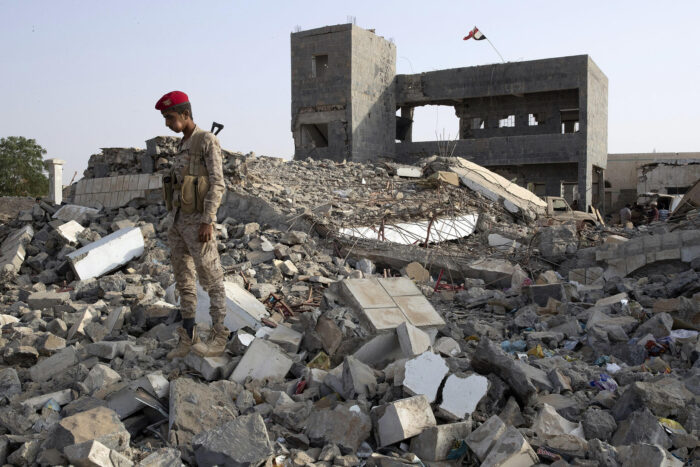US Institute of Peace Panel Discussion — 10 June 2021, 09:00–10:30 EDT
World Refugee & Migration Council President Fen Osler Hampson and Council member Pamela Aall to speak at US Institute of Peace panel discussion about new publication, “Diplomacy and the Future of the World Order.”
The practice of peace and conflict diplomacy — or the activities that states, international organizations and civil society employ to make peace and manage conflict — is increasingly challenged. The emergence of China and resurgence of Russia have shifted the rules of the game, creating risks of major power confrontation and competition over accepted international norms such as respect for human rights, state sovereignty and principled international engagement. Meanwhile, transnational threats such as the proliferation of violent extremism, cyberwarfare and climate-induced mass migration have introduced conflicts far different from those diplomats have encountered in the past.
These forces — together with growing waves of populism and Western isolationism after a series of failed foreign interventions — have eroded faith in the efficacy of diplomatic engagement and broken down the consensus on the merits of peace and conflict diplomacy. Can peace and conflict diplomacy survive in this discordant international environment?
A newly released edited volume, “Diplomacy and the Future of World Order,” offers answers to this question. Featuring essays from 19 scholars, the book explores the prospects for discord or collaboration around major security issues and considers how diverse strains of diplomacy may impact the foundation for global peacemaking and conflict management in an uncertain future.
Join USIP for a conversation with several of the book’s leading authors and other experts on the project’s findings and its implications for the practice of peace and conflict diplomacy. Panelists will debate how to adapt our diplomatic strategies to shape a more effective, agile and inclusive system of international cooperation, as well as consider how to make room for diverse voices — including regional organizations and civil society — while maintaining a sense of unity and common purpose.
Speakers
Lise Grande, welcoming remarks
President and CEO, U.S. Institute of Peace
Dr. Chester Crocker, introductory remarks
James R. Schlesinger Professor of Strategic Studies, Georgetown University
Ambassador George Moose, moderator
Vice Chair, Board of Directors, U.S. Institute of Peace
Ambassador Barbara Bodine
Director, Institute for the Study of Diplomacy; Distinguished Professor in the Practice of Diplomacy, Georgetown University
Ambassador Jean-Marie Guéhenno
Distinguished Fellow, Foreign Policy, Brookings Institution
Dr. Fen Hampson
Chancellor’s Professor, Carleton University; President, World Refugee and Migration Council
Dr. See Seng Tan
Professor of International Relations, S. Rajaratnam School of International Studies
Dr. Solomon Dersso
Chairperson, African Commission on Human and Peoples’ Rights
Pamela Aall, closing remarks
Senior Advisor, Conflict Prevention and Management, U.S. Institute of Peace
Photo: A Yemeni military policeman stands atop the rubble of a former school in the Hairan district of Yemen on Jan. 21, 2019. (Tyler Hicks/The New York Times via USIP)
